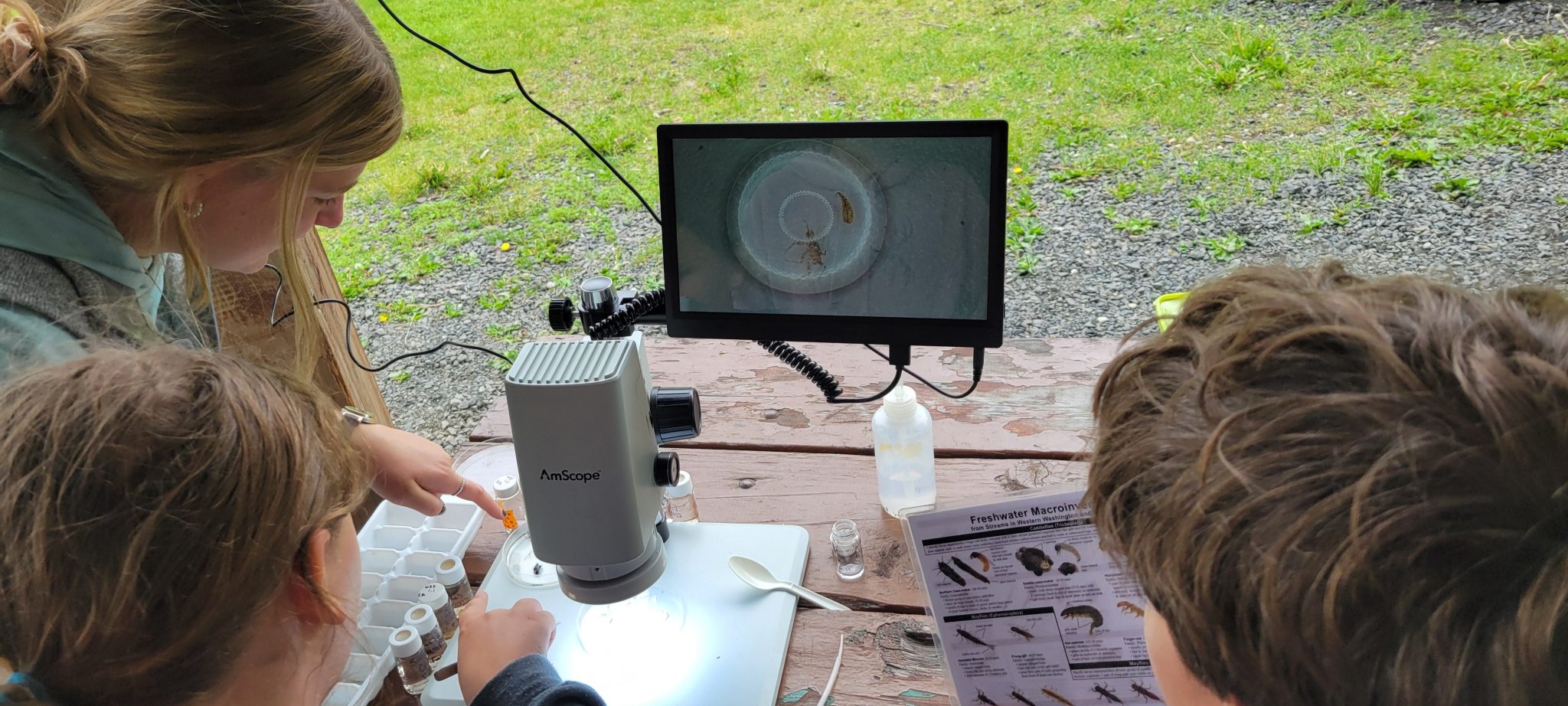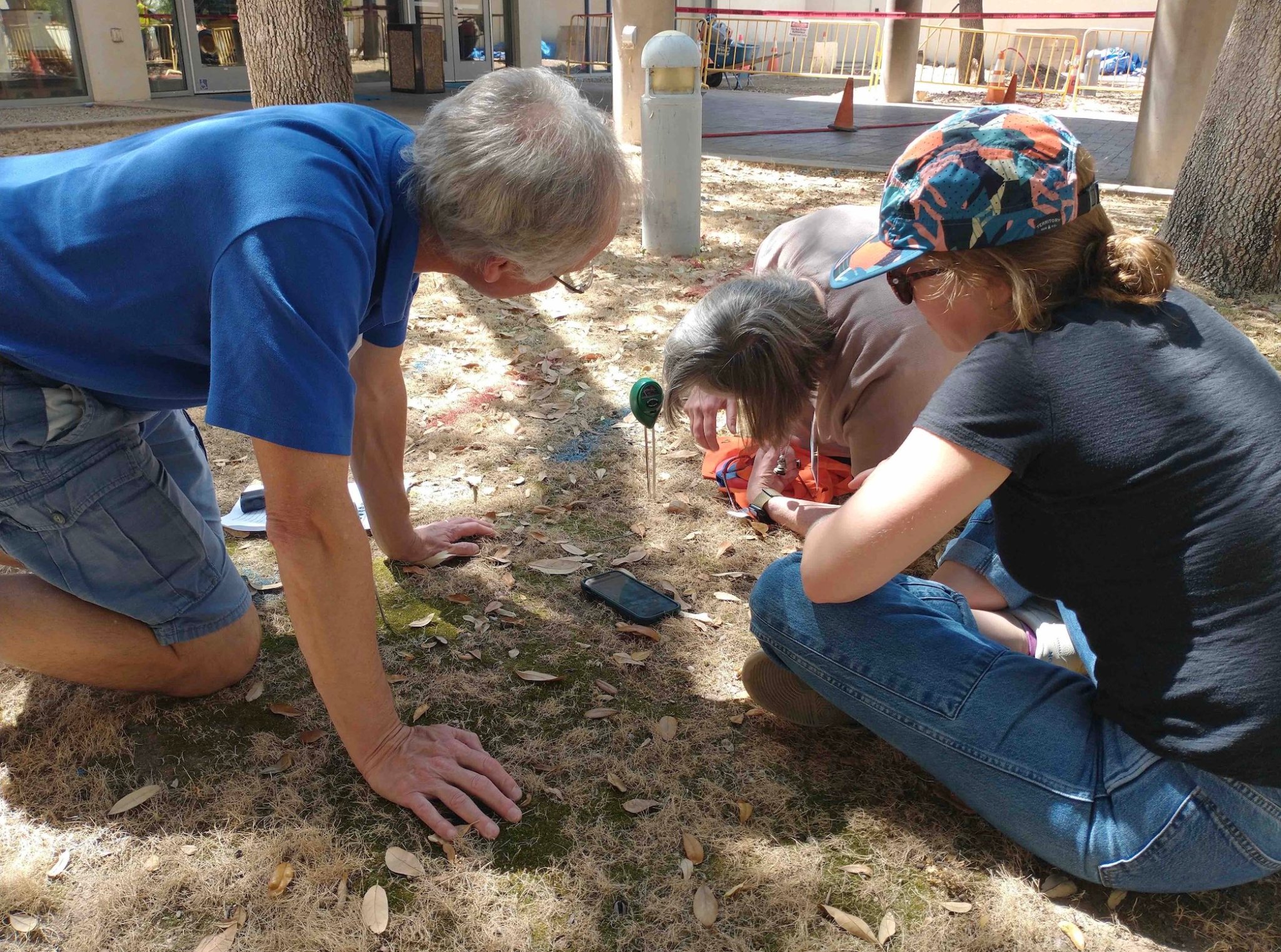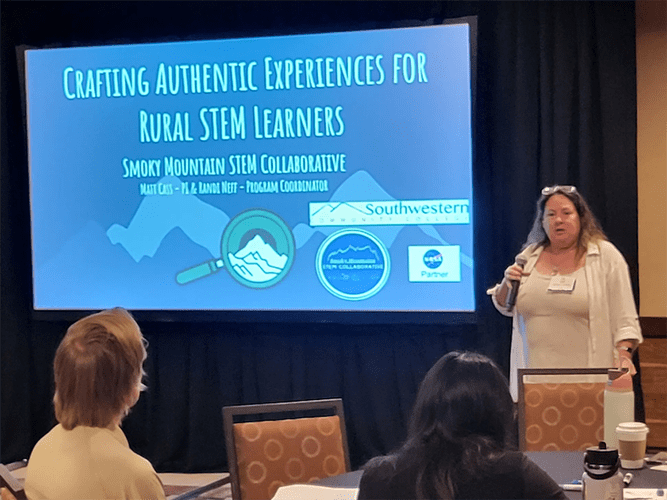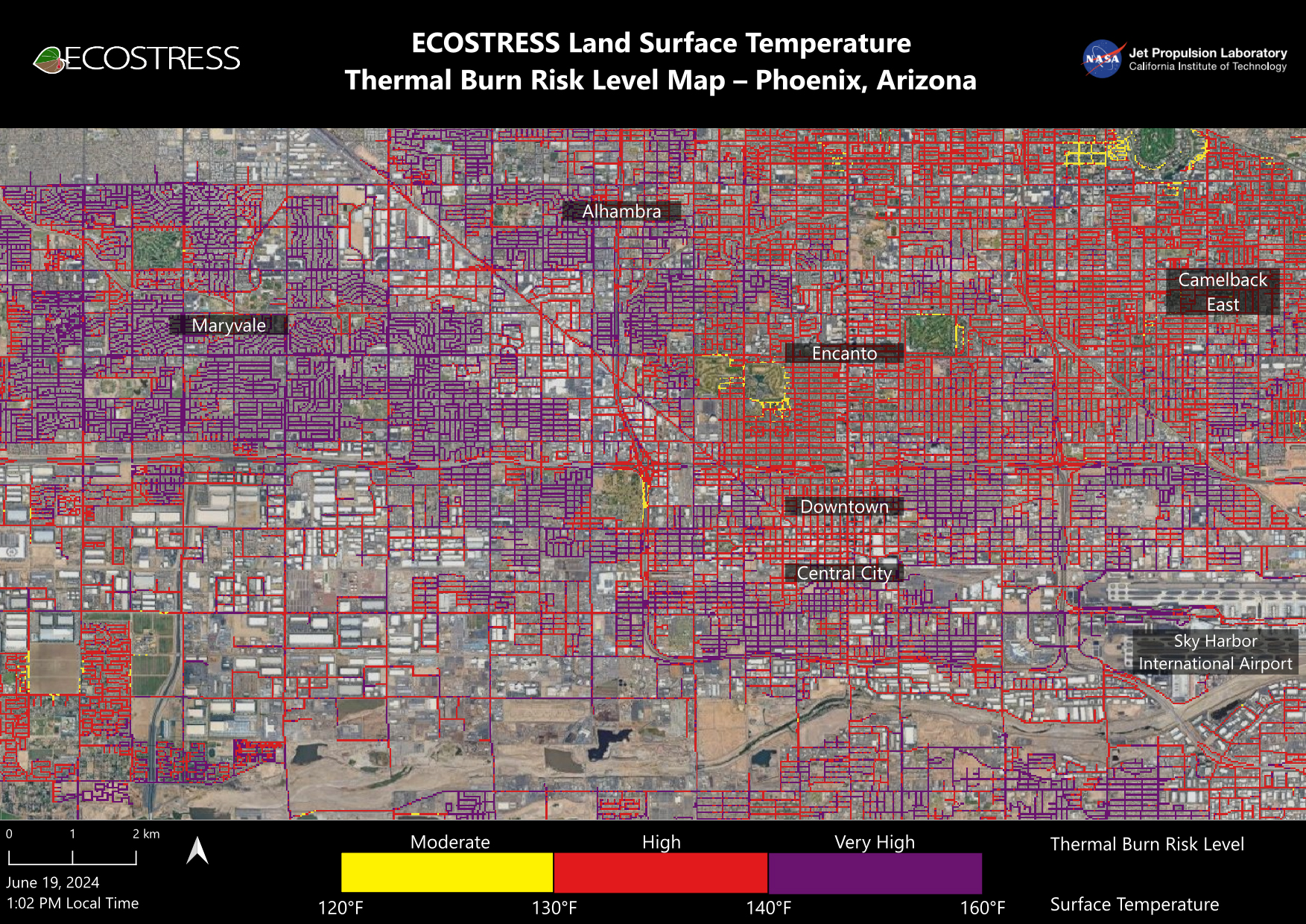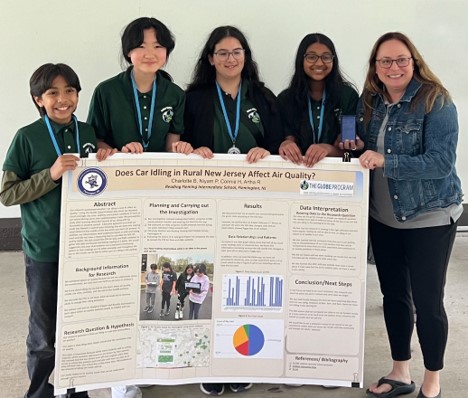Learn Home GLOBE Alumna and Youth for… Earth Science Overview Learning Resources Science Activation Teams SME Map Opportunities More Science Stories Science Activation Highlights Citizen Science 4 min read GLOBE Alumna and Youth for Habitat Program Lead Named Scientist of the Month in Alaska As a 16-year old high school graduate, Maggie House decided to leave the military base in Germany where she lived with her family and go to college close to nature in Fairbanks, Alaska. She had lived in many countries and US states and knew she…
Read MoreTag: Earth Science
PLACES team publishes blog post on NextGenScience Blog
Learn Home PLACES team publishes blog… Earth Science Overview Learning Resources Science Activation Teams SME Map Opportunities More Science Stories Science Activation Highlights Citizen Science 2 min read PLACES team publishes blog post on NextGenScience Blog The NASA Science Activation program’s PLACES (Broadening Data Fluency Through the Integration of NASA Assets and Place-Based Learning to Advance Connections, Education, and Stewardship) team – which focuses on supporting educators to implement Place-Based, Data-Rich (PBDR) instruction using NASA assets in their own contexts – recently published a blog post about the PLACES…
Read MoreNASA-Funded Studies Explain How Climate Is Changing Earth’s Rotation
6 min read Preparations for Next Moonwalk Simulations Underway (and Underwater) The Arctic is captured in this 2010 visualization using data from NASA’s Aqua satellite. A new study quantifies how climate-related processes, including the melting of ice sheets and glaciers, are driving polar motion. Another study looks at how polar meltwater is speeding the lengthening of Earth’s day. NASA’s Scientific Visualization Studio Researchers used more than 120 years of data to decipher how melting ice, dwindling groundwater, and rising seas are nudging the planet’s spin axis and lengthening days. Days…
Read MoreThe Earth Observer Editor’s Corner: Summer 2024
Earth Observer Earth Home Earth Observer Home Editor’s Corner Feature Articles Meeting Summaries News Science in the News Calendars In Memoriam More Archives 8 min read The Earth Observer Editor’s Corner: Summer 2024 Welcome to a new era for The Earth Observer newsletter! This communication marks the official public release of our new website. While this release moves us into a new online future, the newsletter team has worked to ensure the new website also allows for continuity with our publication’s robust 35-year history. The Executive Editor has written a more detailed overview of…
Read MoreThe Earth Observer’s 35th Anniversary
Earth Observer Earth Home Earth Observer Home Editor’s Corner Feature Articles Meeting Summaries News Science in the News Calendars In Memoriam More Archives 3 min read The Earth Observer’s 35th Anniversary Welcome to a new era for The Earth Observer newsletter! Our 35th anniversary also marks the official public release of our new website. Over the past year and a half, The Earth Observer has migrated from a print publication (the last printed issue was November–December 2022) to publishing PDFs online only (final PDF issue published in May 2024) to publishing individual articles on our new site.…
Read MoreScience Activation’s PLACES Team Facilitates Second Professional Learning Institute
3 min read Science Activation’s PLACES Team Facilitates Second Professional Learning Institute The NASA Science Activation Program’s Place-Based Learning to Advance Connections, Education, and Stewardship (PLACES) team successfully led their second Professional Learning (PL) Summer Institute (SI) at Northern Arizona University (NAU) in Flagstaff, Arizona from June 11-13, 2024. The team led a group of 13 educators through a variety of powerful place-based data-rich (PBDR) experiences across the three-day SI. PL kicked off with teachers engaging in an intensive field experience at Hat Ranch that leveraged the ecological expertise of…
Read MoreNASA Science Activation Teams Present at National Rural STEM Summit
1 min read NASA Science Activation Teams Present at National Rural STEM Summit NASA Science Activation (SciAct) teams participated in the National Rural STEM (Science, Technology, Engineering, & Mathematics) Summit held June 4-7, 2024 in Tucson, Arizona. Hosted by Kalman Mannis of the Rural Activation and Innovation Network (Arizona Science Center) and the SciTech Institute, the summit fostered learning and sharing among organizations dedicated to creating partnerships and pathways for authentic STEM learning in rural communities. Participants included: Matt Cass and Randi Neff from SciAct’s Smoky Mountains STEM Collaborative, who…
Read MoreNASA’s ECOSTRESS Maps Burn Risk Across Phoenix Streets
3 min read Preparations for Next Moonwalk Simulations Underway (and Underwater) NASA’s ECOSTRESS instrument on June 19 recorded scorching roads and sidewalks across Phoenix where contact with skin could cause serious burns in minutes to seconds, as indicated in the legend above. NASA/JPL-Caltech Roads and sidewalks in some areas get so hot that skin contact could result in second-degree burns. Researchers at NASA’s Jet Propulsion Laboratory in Southern California have mapped scorching pavement in Phoenix where contact with skin — from a fall, for example — can cause serious burns.…
Read MoreNASA@ My Library and Partners Engage Millions in Eclipse Training and Preparation
2 min read NASA@ My Library and Partners Engage Millions in Eclipse Training and Preparation The Space Science Institute, with funding from the NASA Science Mission Directorate and Gordon and Betty Moore Foundation, provided unprecedented training, support, and supplies to 15,000 libraries in the U.S. and territories in support of public engagement during the 2023 and 2024 eclipses. From September 2022 to September 2024, these efforts included: Co-development efforts with 3 NASA@ My Library Partner Libraries in the “Square of Awesome” (where both the total and annular eclipse crossed) led…
Read MoreTeachers Bring Student Teams to GLOBE Research Symposia
5 min read Teachers Bring Student Teams to GLOBE Research Symposia A year-long professional development experience for teachers resulted in participation of 10 student teams at Global Learning & Observations to Benefit the Environment (GLOBE) student research symposia. Teachers from the ENGAGE (Earth, NASA, GLOBE, and Guided Explorations) GLOBE Mission Earth 2023-2024 virtual educator cohort have been connecting throughout the school year to learn GLOBE protocols, identify opportunities for students to present GLOBE research, and to share lessons learned. The NASA Science Activation Langley Research Center (LaRC) team led the…
Read More